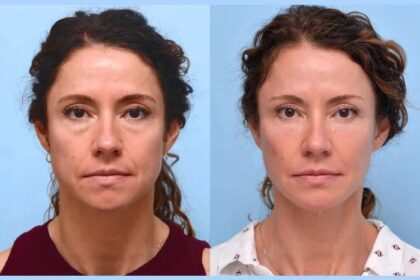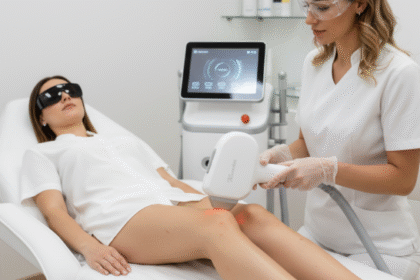Many people only think about visiting the dentist when they experience pain, sensitivity, or visible damage. However, preventive dentistry focuses on keeping your teeth and gums healthy long before problems arise. By identifying and treating issues early—or preventing them altogether—you can save yourself from discomfort, time-consuming procedures, and expensive dental bills.
In this article, we’ll explore how preventive dentistry works, why it’s essential, and the many ways it helps you maintain both your oral health and your budget.
What Is Preventive Dentistry?
Preventive dentistry is a proactive approach to oral health that emphasizes regular care, education, and maintenance. The goal is simple: to prevent cavities, gum disease, enamel wear, and other dental issues before they become serious.
It involves a combination of professional dental care and at-home habits, including:
-
Regular dental checkups and cleanings
-
Fluoride treatments and dental sealants
-
Good brushing and flossing habits
-
Balanced diet and lifestyle choices
-
Early diagnosis through dental X-rays and screenings
Preventive dentistry isn’t just about avoiding problems—it’s about preserving your natural smile for life. You can check here for Preventive dental services.
The Cost of Neglecting Oral Health
Skipping dental appointments might seem like a money-saving choice, but in reality, it often leads to higher costs down the line. Minor issues that go untreated can quickly develop into severe conditions requiring extensive care.
For example:
-
A small cavity can turn into a root canal or crown if left untreated.
-
Mild gingivitis can progress to periodontal disease, which may require scaling, surgery, or even tooth replacement.
-
Ignored cracks or worn enamel can result in tooth fractures or infections.
Preventive dentistry helps detect these problems early, when treatment is simpler, faster, and significantly less expensive.
Key Components of Preventive Dentistry
Let’s take a closer look at the essential elements that make preventive care so effective.
1. Routine Dental Checkups
Visiting your dentist Greensboro NC every six months allows them to monitor your oral health closely. These visits typically include:
-
Professional cleaning to remove plaque and tartar buildup.
-
Examination of teeth and gums for early signs of decay or disease.
-
X-rays to detect hidden problems like bone loss or impacted teeth.
Routine exams ensure small problems are caught early, saving you from pain and costly procedures later.
2. Professional Dental Cleanings
Even with excellent brushing and flossing, plaque can harden into tartar, which only a dentist or hygienist can remove. Regular cleanings help:
-
Prevent gum disease
-
Reduce bad breath
-
Keep enamel strong and bright
A professional cleaning every six months can prevent conditions that might lead to deep cleanings, gum treatments, or restorative work.
3. Fluoride Treatments
Fluoride is a natural mineral that strengthens tooth enamel and prevents decay. Dentists often apply concentrated fluoride during checkups to help remineralize weak areas before cavities form.
This simple preventive measure can delay or even eliminate the need for fillings in the future.
4. Dental Sealants
Sealants are thin, protective coatings applied to the chewing surfaces of molars—where food particles and bacteria tend to accumulate. They’re especially beneficial for children and teens, but adults can benefit too.
Sealants act as a barrier, preventing decay in areas that are difficult to clean thoroughly with a toothbrush.
5. Good At-Home Oral Care
Preventive dentistry extends beyond the dental office. Consistent home care is vital, including:
-
Brushing twice daily with fluoride toothpaste
-
Flossing daily to remove plaque between teeth
-
Rinsing with an antimicrobial mouthwash
-
Eating a balanced diet low in sugary snacks and acidic drinks
Small daily habits make a big difference in long-term oral health.
6. Early Intervention and Education
Dentists don’t just treat—they educate. By learning proper techniques and being aware of early warning signs (like bleeding gums or sensitivity), you can address issues before they escalate.
How Preventive Dentistry Saves You Money
Preventive dental care offers significant financial benefits in the long run. Here’s how:
-
Avoid Expensive Treatments
Procedures like root canals, crowns, implants, or periodontal surgery can cost thousands of dollars. Regular checkups and cleanings cost a fraction of that and prevent the need for major restorations. -
Preserve Natural Teeth
Keeping your natural teeth healthy avoids the cost of replacements like dentures, bridges, or implants. -
Reduce Emergency Visits
Toothaches and infections often occur when decay or damage goes unnoticed. Preventive care minimizes the risk of sudden dental emergencies that require urgent—and expensive—treatment. -
Maximize Insurance Benefits
Most dental insurance plans cover preventive care 100%. Taking advantage of these benefits keeps your out-of-pocket expenses low. -
Long-Term Health Savings
Oral health is closely linked to overall health. Preventing gum disease can lower your risk for conditions like diabetes, heart disease, and respiratory infections—saving medical costs in the long term.
The Broader Benefits of Preventive Dentistry
Beyond cost savings, preventive dentistry offers several other life-enhancing benefits:
-
Improved confidence from a cleaner, brighter smile.
-
Better breath and oral freshness.
-
Reduced anxiety about future dental problems.
-
Less time in the dental chair for complex treatments.
-
Peace of mind knowing your oral health is under control.
Preventive care supports your overall well-being, not just your teeth.
When to Start Preventive Dentistry
It’s never too early—or too late—to start caring for your smile.
-
Children should begin dental visits as soon as their first tooth appears. Early habits build lifelong oral health.
-
Adults benefit from regular exams to manage changes like gum recession, enamel wear, or shifting teeth.
-
Seniors should focus on maintaining healthy gums and managing conditions like dry mouth that can increase decay risk.
Regardless of age, consistent preventive care is key to avoiding future complications.
Conclusion
Preventive dentistry is the smartest investment you can make for your smile—and your wallet. By staying proactive with regular checkups, cleanings, and good daily habits, you can avoid painful, costly treatments and keep your teeth healthy for life.
Instead of waiting for dental problems to appear, take charge of your oral health now. Schedule your next preventive dental visit and enjoy the confidence of a healthy, strong, and cost-effective smile for years to come.



